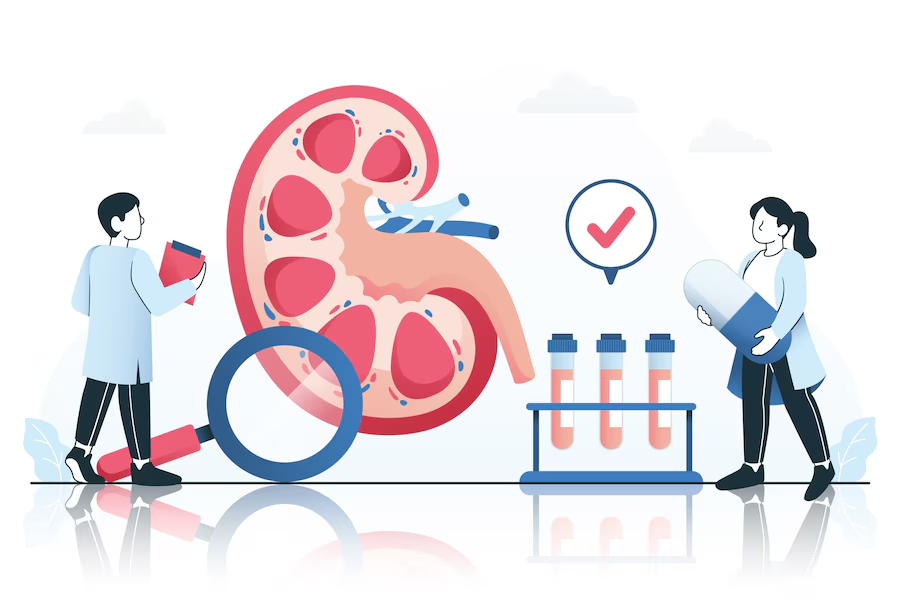Kidney disease can disturb the body’s ability to clean blood, filter out additional water, and manage blood pressure. It can also impact the production of red blood cells and vitamin D metabolism required for the health of the bones.
Hence, if the kidneys are damaged, excess fluids and waste products start to build up in the body. This can cause a range of symptoms such as swelling in your ankles, nausea, weakness, poor sleep, and shortness of breath. Without any treatment or management, the condition may worsen and lead to kidney failure.
Several types of kidney disease are treatable. These treatments aim to ease symptoms, prevent the kidneys from failing to function or eliminate the risk of serious complications for an individual. However, chronic kidney disease is a lifelong condition for which there is no cure.
WHAT ARE THE SYMPTOMS OF KIDNEY DISEASE?
Initially, there are less or no signs of kidney disease. However, with time, the symptoms may become more noticeable. These include:
- Frequent urination
- Low energy level, weakness and tiredness
- Loss of appetite
- Swelling of your ankles, feet and hands
- Shortness of breath
- Foamy or bubbly urine
- Swollen eyes
- Dry and itchy skin
- Poor concentration
- Sleeping problems
- Numbness
- Nausea or vomiting
- Muscle cramps.
- High blood pressure
CAUSES OF KIDNEY DISEASE
Some conditions and diseases that cause chronic kidney disease involve:
- Type 1 or type 2 Diabetes
- High blood pressure
- Glomerulonephritis
- Interstitial nephritis
- Polycystic kidney disease or other inherited kidney diseases
- Prolonged obstruction of the urinary tract, from diseases such as enlarged prostate, kidney stones and some cancers
- Vesicoureteral reflux
- Recurrent kidney infection, also known as pyelonephritis
PREVENTION AND MANAGEMENT OF CHRONIC KIDNEY DISEASE
While there’s no cure for chronic kidney disease (CKD), certain prevention and care can be taken to help with the remaining kidney functions:
Regular checkups with your nephrologist (kidney specialist) to screen your kidney health
Manage your blood sugar levels if you have diabetes and blood pressure levels
Avoid taking painkillers and other medicines that can take a toll on the condition of your kidneys
Dietary changes may include limiting certain foods. A dietitian can help you plan your meals.
Avoid smoke and intake of alcohol
Physical activity such as exercise and maintaining a healthy weight


